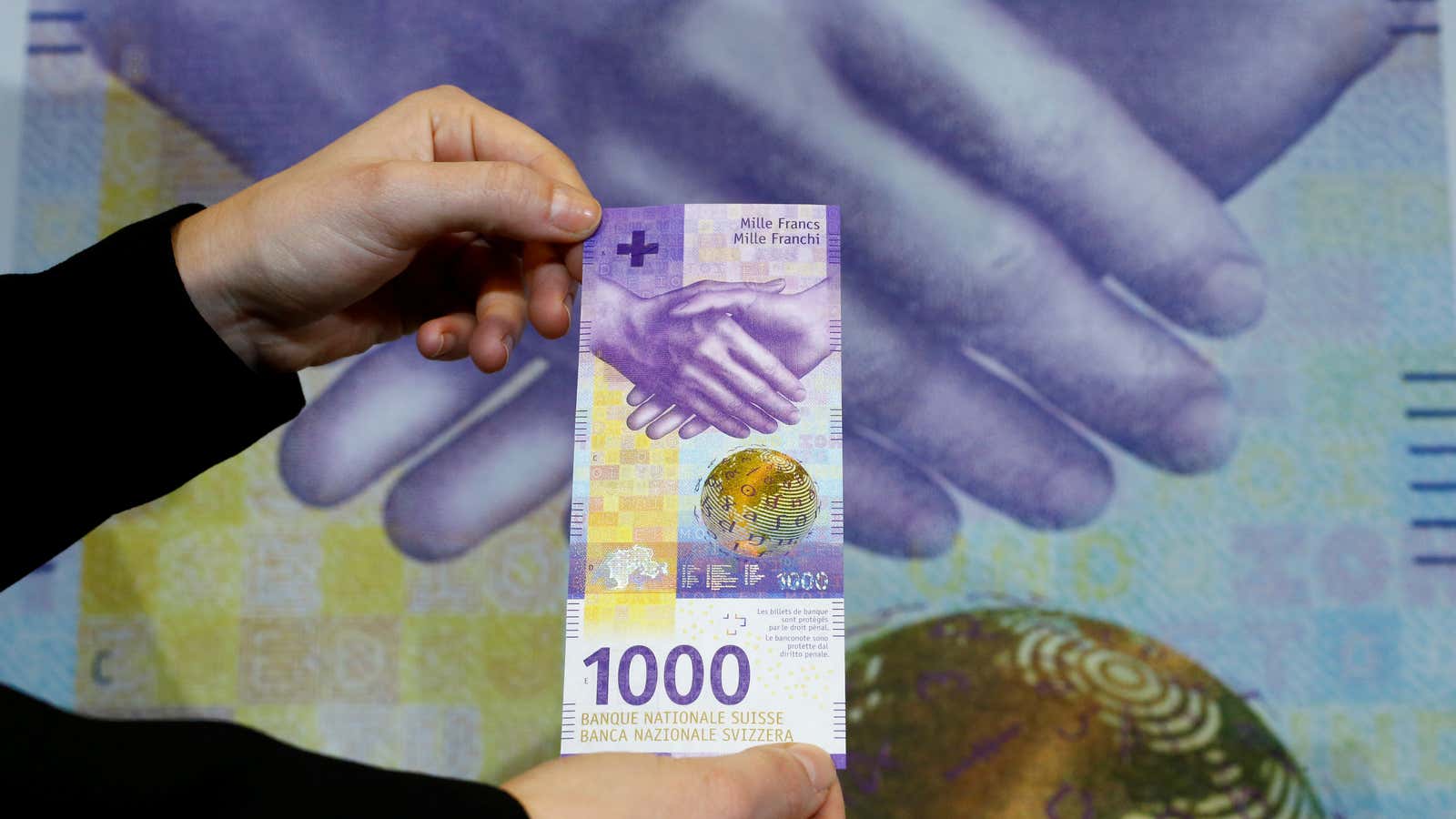Money launderers, numismatists, and European doomsday preppers rejoice: Even as the rest of the world marches relentlessly toward a cashless future, the Swiss 1,000-franc note is here to stay. In fact, according to a press release issued by the Swiss National Bank today (March 5), it’s about to get a fresh new look, effective next week.
The new note is handsomely rendered in purple and yellow and depicts two hands shaking above a globe. After Brunei’s B$10,000 bill (worth about $7,400 USD), it is the second-largest value bank note still printed today.
The inspiration for the new design of the 1,000-franc note and the other notes in the series, the bank said, is “the many facets of Switzerland.” With this extremely valuable bit of paper, you could in one fell swoop buy such Swiss commodities as almost 150 pounds (68kg) of Toblerone, about 20% of the cheapest Rolex, 40 Swiss army pen-knives, or 14 pounds (about 6kg) of Emmental cheese (it’s the one with the holes)—though you might invite a few questions from a curious clerk.
Addressing a news conference, Fritz Zurbruegg, the vice-chairman of the Swiss National Bank, said the large note remained a popular choice for big-ticket items or settling large bills at the post office. “The current denominations are appropriate and correspond to what people want,” he said. “The 1,000-franc note is used for payments and also has a function as a store of value. Cash is still very popular in Switzerland, it is a cultural phenomenon.” While America and the UK grapple with the consequences of digital currency, the privacy-inclined Swiss continue to make use of untraceable physical dough in large quantities. In 2017, a sunglasses case containing nearly $30,000 in euros was found in a pile of snow in Zurich and later returned to its owner by police.
Swiss shopkeepers are quite accustomed to seeing the huge bills, one of the owners of Zurich-based jeweler Les Millionnaires told Bloomberg (paywall).“It’s quite frequent that we’ve got someone who comes in looking for a present and who pays in cash because they don’t want their partner to find out, “ the unnamed proprietor said. “It’s the surprise effect.”
